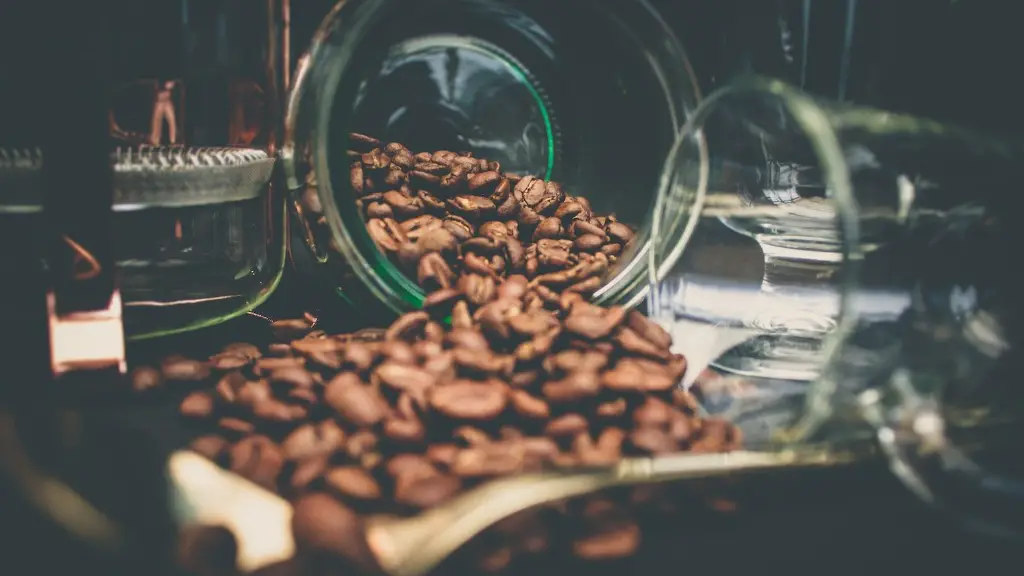Coffee is a world-wide phenomenon that has become an important part of many people’s daily routines. However, there is still much controversy surrounding the effects of drinking coffee on an empty stomach. Some health experts argue that drinking coffee on an empty stomach can exacerbate symptoms such as heartburn, while others suggest that it can provide a natural source of energy and mental alertness.
Recent studies investigating the impact of drinking coffee on an empty stomach suggest that although it can provide a temporary burst of energy and improved mental performance, this is at the cost of an increase in gastrointestinal symptoms. In some cases, consumption of processed caffeine on an empty stomach can lead to acid reflux, heartburn and nausea. In patients with an existing gastrointestinal disorder, these symptoms can be even more problematic.
One of the primary concerns surrounding the concept of drinking coffee on an empty stomach is that it could interfere with absorption of vitamin B12. This is largely because caffeine can interfere with absorption of other essential vitamins and minerals, including iron and calcium.
Ultimately, the best way to decide if drinking coffee on an empty stomach is right for you is to use your own judgement. Some people find that they are not affected by drinking coffee on an empty stomach and are able to enjoy the mental and physical benefits that accompany a cup of java. However, if you suffer from any underlying gastrointestinal conditions, it is likely best to avoid drinking coffee on an empty stomach entirely.
What time of day should you drink coffee?
Most health experts recommend avoiding coffee late in the evening, as it can cause difficulties in sleeping. However, there is no set time of day that is perfect for drinking coffee. It all depends on a person’s individual lifestyle and when they feel their body needs the boost.
Caffeine levels are usually highest in the afternoon, so it is important to be mindful of timing to avoid crashing later in the evening. For those who only require a mild lift, drinking coffee in the morning is ideal. If individuals find they need a little extra to get through the day without feeling sluggish after lunch, they can aim for a little later.
Overall, listening to one’s body is the best way to ensure that the optimal time for coffee consumption is chosen. Some individuals may be more sensitive to caffeine than others and may benefit from gradually reducing consumption throughout the day.
Does drinking coffee on an empty stomach have any benefits?
While there are potential health risks associated with coffee on an empty stomach, some medical experts argue that there are also many potential benefits. For instance, studies suggest that coffee can stimulate the production of saliva, which can help to break down starches and proteins. Furthermore, some research suggests that coffee can stimulate the production of gastric juices, which can improve digestion.
In addition, coffee contains antioxidants that can help to protect against some diseases, such as type 2 diabetes. Coffee is also the leading source of dietary flavonoids, which are thought to reduce inflammation, help protect the cardiovascular system and boost cognitive functioning.
Overall, while there are potential health risks associated with drinking coffee on an empty stomach, these can be avoided if judiciously consumed.
How much caffeine is too much?
The amount of caffeine that is considered “too much” is different for everyone and can depend on a person’s body type, age, weight, diet, and genetics. Caffeine can build up in the body and when the amount is above the individual’s tolerance level, it can cause negative side effects.
In general, it is recommended that most adults consume no more than 300 mg of caffeine per day. As a guide, one 8 oz cup of coffee contains around 95 mg of caffeine, and one 12 oz can of soda contains 35-45 mg. Therefore, if you choose to drink coffee on an empty stomach, it is important to be mindful of the amount of caffeine you are consuming over the course of the day, to avoid any potential negative side effects.
Do energy drinks have the same effect as coffee?
Energy drinks, such as Red Bull, are popular caffeinated beverages, though their effects can differ from coffee. Many energy drinks contain added sugar or artificial sweeteners, which can leave people feeling sluggish later in the day. Furthermore, energy drinks often contain much higher levels of caffeine than coffee, ranging from 20-500 mg per serving, which can further impact one’s energy levels and mood.
Therefore, it is recommended that individuals who wish to avoid a caffeine crash later in the day should opt for coffee rather than energy drinks. With its lower levels of caffeine, coffee also offers a variety of other health benefits.
What are the other sources of caffeine?
Many people rely on coffee as their primary source of caffeine, while others may opt for other drinks, such as tea, energy drinks, and soda. However, caffeine can also be found in a variety of foods and supplements.
Chocolate and some types of nuts, such as almonds and cashews, contain caffeine. Moreover, many weight loss and energy supplements contain caffeine, and some medications, such as headache remedies, may also contain caffeine.
It is therefore important to be mindful of the amount of caffeine you are consuming, since caffeine can build up in the body. Caffeine overdose can cause nausea, rapid heartbeat, restlessness, anxiety, and other symptoms.
Can caffeine have a positive or negative effect depending on the individual?
The effects of caffeine can vary greatly from person to person. In some individuals, as little as one cup of coffee can produce an excessive amount of energy and alertness, while others may need more cups to achieve the same result.
It is important to listen to your body and assess how you respond when ingesting caffeine. If you find that it gets you up and energized in a positive way and doesn’t lead to negative side effects, then drinking coffee on an empty stomach may be something that you can benefit from.
Are there other natural stimulants that can replace caffeine?
A great way to avoid the potential risks of drinking coffee on an empty stomach is to replace it with herbal teas or natural stimulants, such as guarana, which is naturally found in some plants. Similarly, elements such as ginseng, green tea and chamomile tea can act as a natural stimulant without the risks associated with caffeine.
It is also important to make sure that you are getting enough sleep and that you are eating a balanced diet. Eating foods rich in iron, such as red meat and leafy green vegetables, can help to reduce the effects of caffeine on the body, as iron is a mineral that the body needs to produce energy.
Overall, although caffeine can provide a temporary burst of energy, for those concerned about its potential effects, there are many natural alternatives that can be used to avoid any risks, such as herbal teas, dietary supplements and balanced nutrition.





